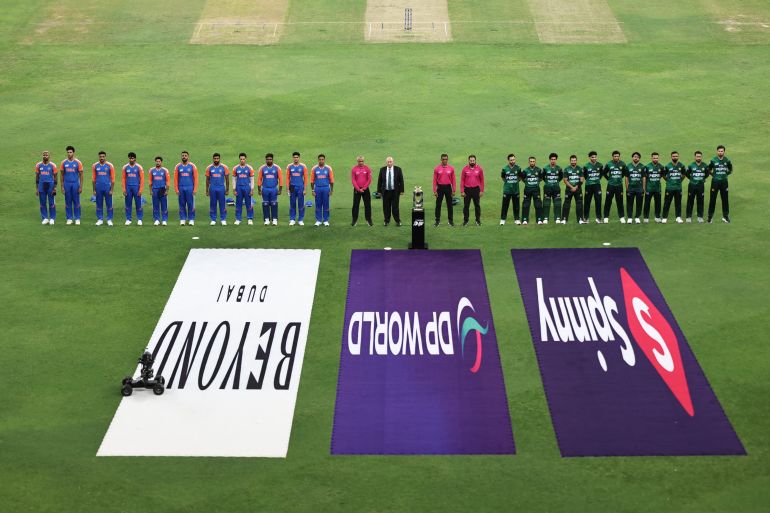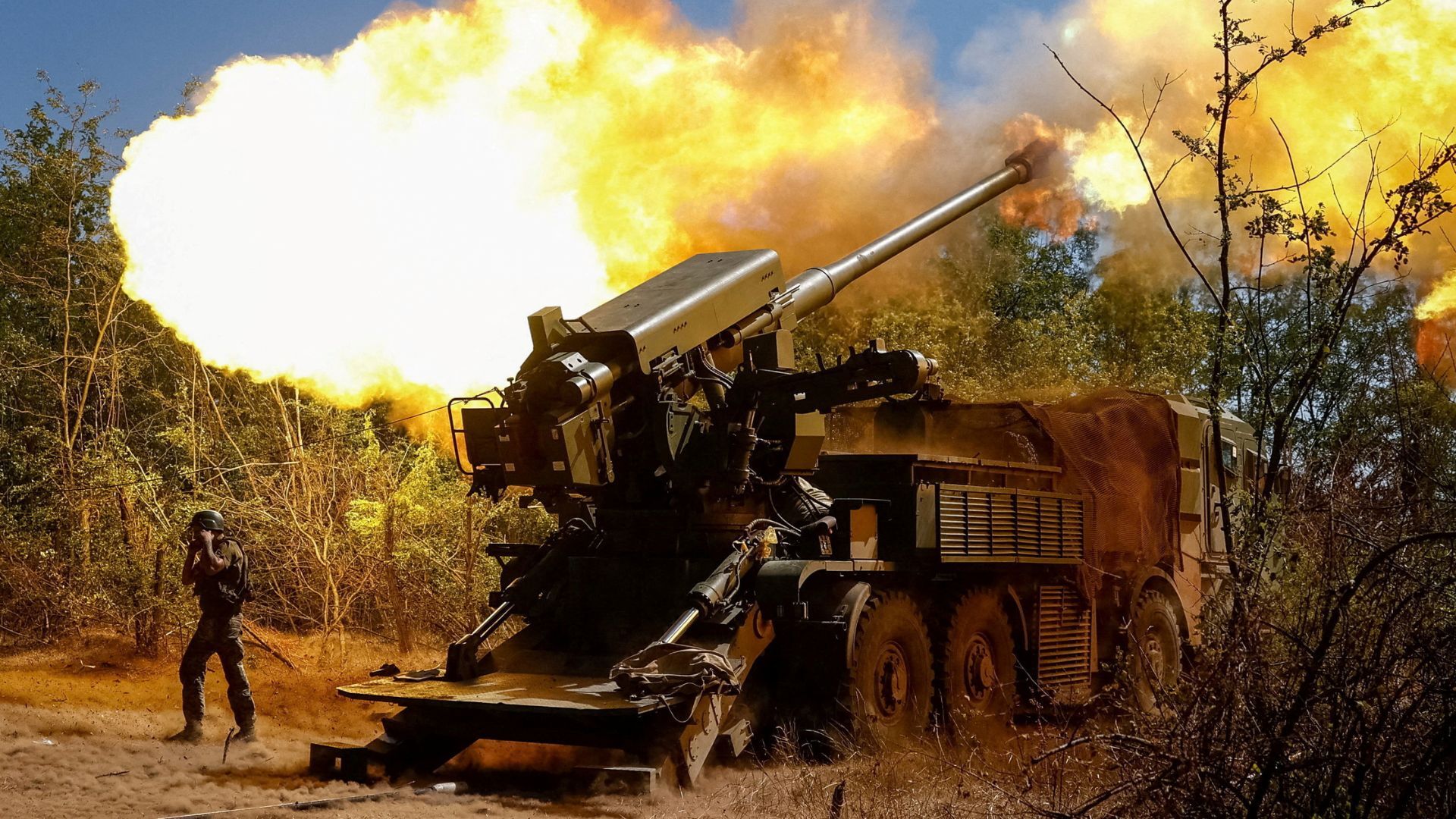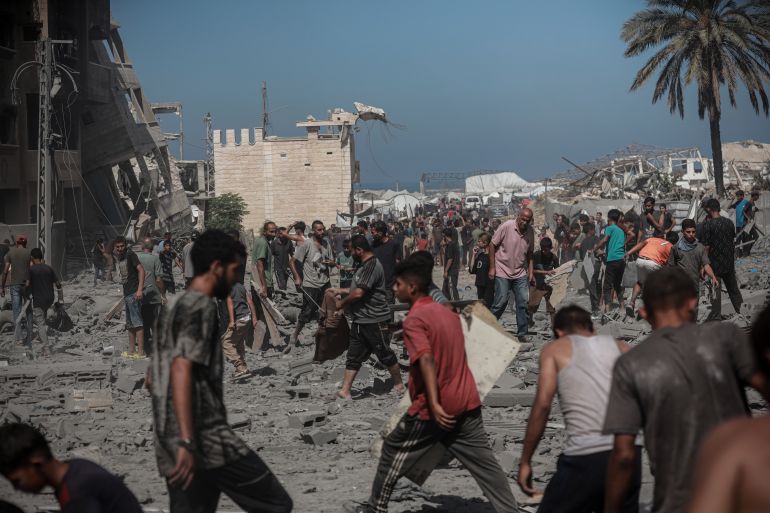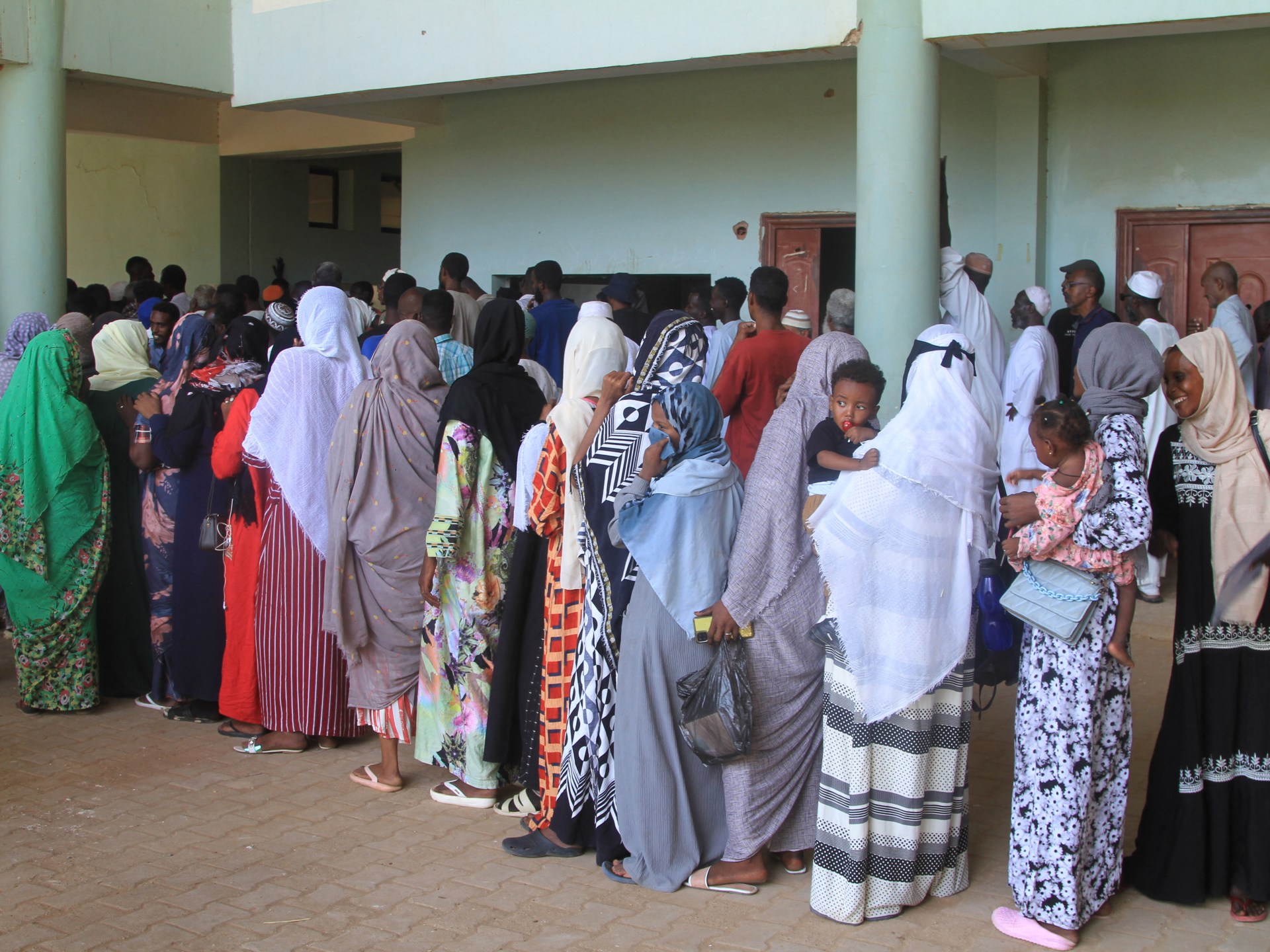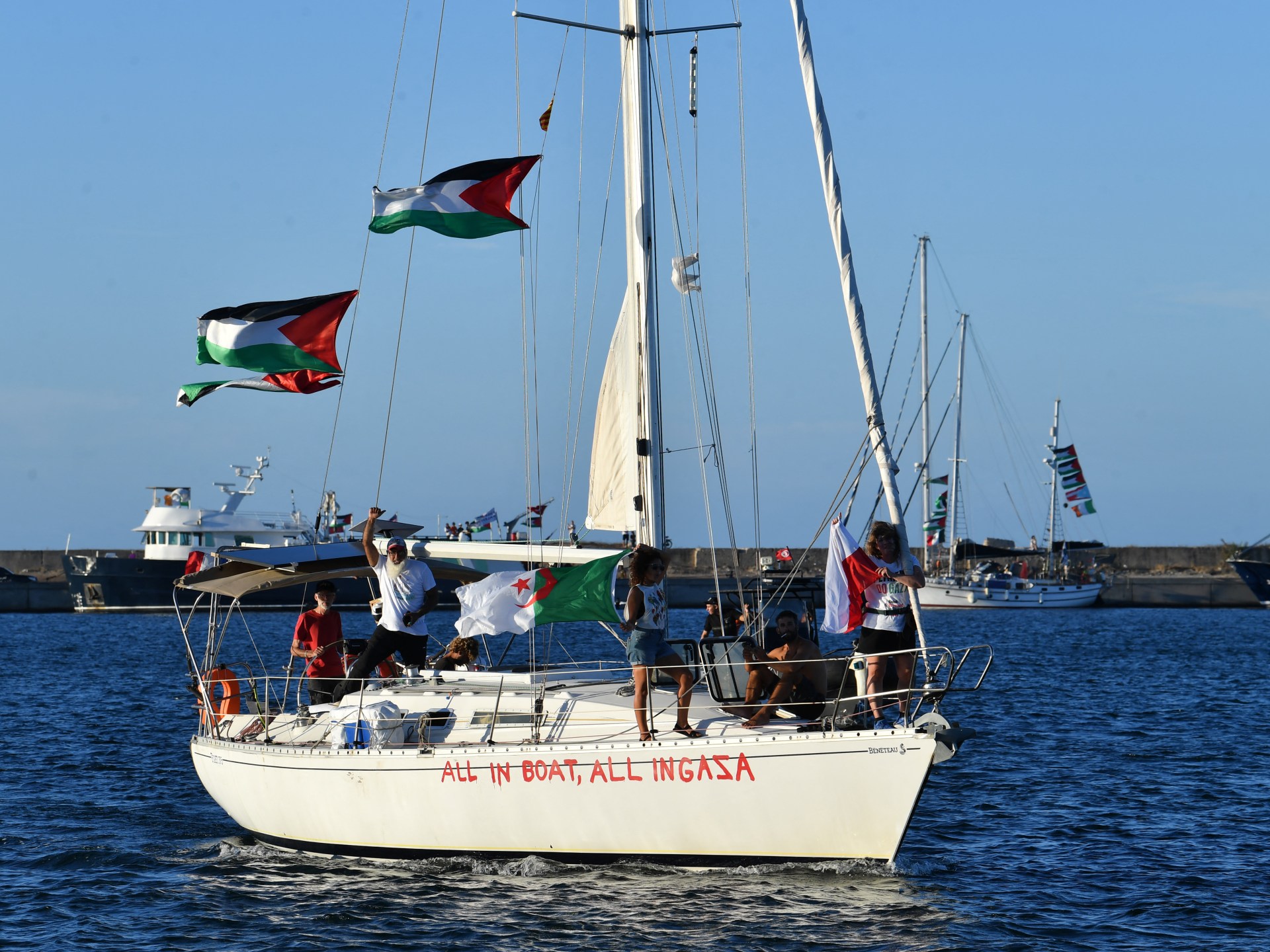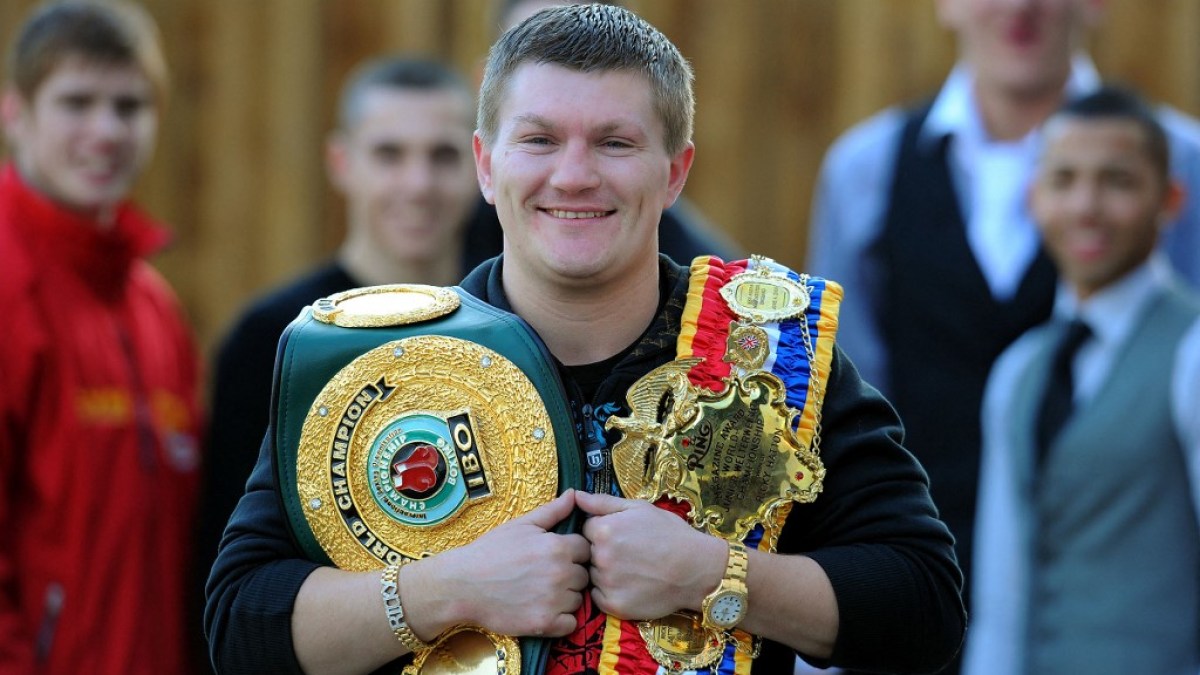Dubai, UAE – The wide-ranging ramifications of an ongoing political standoff between India and Pakistan have led to a controversial conclusion of the archrivals’ cricket match at the Asia Cup 2025 in Dubai, where India’s captain Suryakumar Yadav confirmed that his squad opted against shaking hands with their opponents as a mark of protest.
When Sunday’s Group A fixture between the South Asian archrivals was confirmed after long deliberations from the Indian government, fans and experts had hoped that the on-field action could help cool the off-field heat.
Recommended Stories
list of 3 itemsend of list
Yadav, though, crushed all expectations by saying his team’s thumping seven-wicket win in the T20 match was a “perfect reply” to Pakistan in the wake of the intense four-day cross-border conflict that brought both countries to the brink of an all-out war in May.
“Our [Indian] government and the BCCI [Board of Control for Cricket in India] were aligned on the decision to play this match. We came here just to play the match and gave them [Pakistan] a perfect reply,” Yadav told the media shortly after the match.
What happened at the end of the India vs Pakistan match?
Yadav, who hit the winning runs for India, walked off the field alongside his batting partner, Shivam Dube, without approaching the Pakistani captain and team for the traditional post-match handshakes.
Pakistan’s players trudged off in a group and waited for the Indian squad and support staff to come out and shake hands, as is the norm at the end of cricket matches.
However, the Indian contingent only shook hands with each other before walking into their dressing room and shutting the door as the waiting Pakistan players looked on.
No handshakes between the teams. Salman Agha looked to lead Pakistan over to the India dressing room, but nothing doing. They all headed straight in #INDvPAK pic.twitter.com/0BbJtYdkAf
Why did Indian team refuse to shake hands with Pakistani players?
The Indian captain was asked to clarify his team’s actions and whether they were in contradiction with the spirit of the sport.
“A few things in life are above sportsman’s spirit,” the 35-year-old swiftly responded.
“We stand with all the victims of the Pahalgam terror attack and with their families, and dedicate this win to our brave armed forces who took part in Operation Sindoor.”
Yadav was referring to the Indian armed forces’ multiple missile attacks on six locations inside Pakistan.
India said the missiles were in response to the April 22 attack on tourists in Indian-administered Kashmir in Pahalgam, in which 26 men were killed. An armed group called The Resistance Front (TRF), which demands independence for Kashmir, claimed responsibility for the attack, but India had alleged Pakistani involvement.
Two days later, Pakistan responded to the missile strikes by attacking military installations across its frontier with India and Indian-administered Kashmir, striking at least four facilities.
The conflict ended four days later, thanks to an internationally-brokered ceasefire.
While the exchange of aerial fire came to a halt, the diplomatic ties between the neighbours remained suspended, and the political tension spilled over into cricket when the fixture between India and Pakistan was announced by the Asian Cricket Council (ACC).
Did India break any rules by not shaking hands?
As a result, the match was played under a highly charged political climate, and when both captains did not indulge in the customary handshake at the pre-match toss, the focus swiftly shifted to the interactions between the teams.
However, Al Jazeera has learned that the match referee, Andy Pycroft, had asked Yadav and his counterpart, Agha, to skip the pre-toss ritual.
“The match referee requested both captains to not shake hands at the toss,” an official of the Pakistan Cricket Board (PCB), requesting anonymity, told Al Jazeera after the match.
Match officials also granted India permission to skip the post-match handshakes with Pakistan, but did not inform Agha or his team, according to the source.
This resulted in an awkward-looking post-match scenario, where the Pakistani players followed Yadav off the pitch and waited for the Indians to emerge, only to watch them shut the dressing room door.
How did Pakistan respond?
Pakistan’s manager Naveed Akram Cheema lodged a protest against the Indian cricket team’s actions with Pycroft, who is an International Cricket Council (ICC) accredited match referee.
“The umpires had allowed the Indians to walk off the field without shaking hands for which the match referee apologised after the protest of our team manager,” the official said.
Additionally, Pakistan captain Agha did not speak at the post-match captain’s chat with the host broadcaster in a mark of protest.
Mike Hesson, Pakistan’s head coach, confirmed that Agha’s refusal to show up for the talk and the media briefing was a “follow-on effect” of the Indian team’s actions.
“We were ready to shake hands at the end of the game, but our opposition did not do that,” Hesson said.
“We sort of went over there to shake hands, and they had already gone into the changing room.”
Why are handshakes important in cricket, and what’s the protocol?
As per the norm in cricket, the two on-field players of the team batting second shake hands with the fielding team and the umpires before walking off.
And in what is now a common practice in all international cricket matches, the batting team then enters the ground to shake hands with their opponents.
It offers both sides to end the match on a friendly note and exchange words of encouragement.
In the same manner, both teams’ captains shake hands before the toss, which takes place 30 minutes before the start of play.
The toss is conducted by the match referee on the pitch and usually broadcast live.
Both captains and the match referee can also indulge in a pre-match chat regarding team lineups or any other matters of mutual interest for both teams.
The match referee can also meet a captain, head coach or manager of either team before the match.

What have the tournament officials said about the incident?
The move was lamented by the ACC chairman, Mohsin Naqvi, who is also the chairman of the PCB.
“Utterly disappointing to witness the lack of sportsmanship today,” Naqvi said in a post on X.
“Dragging politics into the game goes against the very spirit of sports.”
Utterly disappointing to witness the lack of sportsmanship today. Dragging politics into the game goes against the very spirit of sports. Lets hope future victories are celebrated by all teams with grace
Al Jazeera has reached out to the ACC for a comment on the revelation that both captains were asked not to shake hands at the toss.
The ACC has not yet responded to the request.
Pakistan and India are likely to meet again in the Asia Cup if both teams qualify for the Super Four stage.
India have all but qualified after two wins in two games, while Pakistan face the UAE in a must-win fixture on Wednesday.
